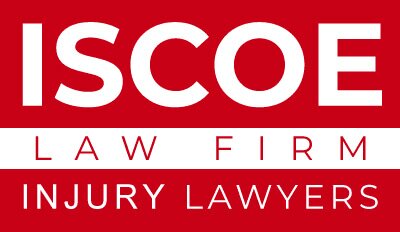Best Property Damage Lawyers in United States
Share your needs with us, get contacted by law firms.
Free. Takes 2 min.
Or refine your search by selecting a city:
List of the best lawyers in United States
United States Property Damage Legal Questions answered by Lawyers
Browse our 1 legal question about Property Damage in United States and read the lawyer answers, or ask your own questions for free.
- MOVING COMPANY DAMAGED RENTAL HOME, FURNITURE AND NEW HOME
- MOVING COMPANY DAMAGED WALLS AND FURNITURE IN TWO HOUSES, THEY DIDNT USED PACKING BLANKETS OR MOVING EQUIPMENT, I FILED A DAMAGE CLAIM MID MOVE, AND RELIEVED THE WORKERS EARLY FROM SCHEDULED TIME TOOK PICS AND SUBMITTED TO THE MOVING COMPANY, NOW THE MOVING COMPANY IS INSINUATING WE CAUSED THE DAMAGE,... Read more →
-
Lawyer answer by T & A Legal
Hello, sorry about the damage to your walls and furniture. The moving company may be liable for a breach of contract or negligence. However, their liability will be determined largely by the contract between you and the moving company.Please note...
Read full answer
About Property Damage Law in United States
Property damage law in the United States covers instances where an individual's or entity's property is harmed, destroyed, or devalued through intentional acts, negligence, or natural disasters. This branch of civil law allows property owners to seek compensation for damages from responsible parties. It includes a wide array of situations such as car accidents, natural disasters, vandalism, and construction defects.
Why You May Need a Lawyer
Handling property damage claims can be complex and overwhelming. Common situations where you may require legal help include:
- Disputing insurance claims: If an insurance company denies your claim or offers inadequate compensation.
- Dealing with intentional harm: If someone deliberately causes damage to your property, legal action might be necessary.
- Understanding liabilities: Determining liability, especially in cases involving multiple parties, can be intricate and may require a lawyer's expertise.
- Navigating legal procedures: To ensure proper legal procedure is followed when filing a lawsuit or negotiating settlements.
- Complex cases involving multiple laws: Some cases may involve both state and federal laws or cross-border issues.
Local Laws Overview
Property damage laws can vary significantly across different states. However, key aspects often include:
- Statutes of Limitations: These define the time frame within which you must file a property damage claim. It typically varies from two to six years depending on the location and nature of the damage.
- Comparative Fault Rules: Some states apply these rules to assess how liability is shared among parties in property damage caused by negligence.
- Insurance Requirements: Each state has regulations regarding what types of property damage need to be covered by insurance.
- Natural Disaster Laws: Special provisions may apply to damages resulting from events like hurricanes, earthquakes, or floods.
Frequently Asked Questions
1. What should I do immediately after discovering property damage?
Document the damage with photos and videos, secure the property to prevent further damage, and notify your insurance company.
2. How do I know if my insurance policy covers the damage?
Review your policy terms or consult with your insurance agent to understand your coverage. A lawyer can also help interpret complex insurance jargon.
3. What if the damage was caused by a neighbor?
Discuss the issue with your neighbor first. If unsuccessful, you may need legal assistance to resolve the dispute and potentially file a claim against them.
4. Can property damage claims be settled out of court?
Yes, many claims are resolved through negotiation and settlement without going to court.
5. What evidence is needed for a property damage claim?
Photos, videos, repair estimates, receipts, and any correspondence related to the damage can serve as crucial evidence.
6. How long does a property damage lawsuit take?
The length of time can vary greatly depending on the complexity of the case, but many cases take several months to a few years.
7. Can I file a claim for emotional distress caused by property damage?
Emotional distress is not typically compensable in property damage claims unless it accompanies personal injury.
8. What if my property was damaged by a minor?
In most states, parents or guardians can be held liable for damages caused by their minor children.
9. Do I need a lawyer to file a property damage claim?
While not mandatory, having a lawyer can significantly improve your chances of a favorable outcome, especially in complex cases.
10. What is subrogation in property damage claims?
Subrogation occurs when your insurer pursues a third party that caused damage to recover the money they've paid out on your claim.
Additional Resources
There are numerous resources available for individuals seeking assistance with property damage claims:
- State Bar Associations: Offer lawyer referral services and resources for understanding local laws.
- Consumer Protection Agencies: Can provide guidance on dealing with insurance disputes.
- National Association of Insurance Commissioners (NAIC): Offers information on insurance regulations by state.
- Federal Emergency Management Agency (FEMA): Provides resources and assistance for property damage due to natural disasters.
Next Steps
If you find yourself in need of legal assistance with property damage, consider the following steps:
- Evaluate the situation and gather all relevant evidence and documentation.
- Contact your insurance company to report the damage and understand your policy coverage.
- Consult with a property damage lawyer to discuss your case and explore legal options.
- Consider seeking referrals or researching lawyers specializing in property damage law through local bar associations or online legal directories.
- Ensure timely action, keeping in mind state-specific statutes of limitations related to filing claims.
Lawzana helps you find the best lawyers and law firms in United States through a curated and pre-screened list of qualified legal professionals. Our platform offers rankings and detailed profiles of attorneys and law firms, allowing you to compare based on practice areas, including Property Damage, experience, and client feedback.
Each profile includes a description of the firm's areas of practice, client reviews, team members and partners, year of establishment, spoken languages, office locations, contact information, social media presence, and any published articles or resources. Most firms on our platform speak English and are experienced in both local and international legal matters.
Get a quote from top-rated law firms in United States — quickly, securely, and without unnecessary hassle.
Disclaimer:
The information provided on this page is for general informational purposes only and does not constitute legal advice. While we strive to ensure the accuracy and relevance of the content, legal information may change over time, and interpretations of the law can vary. You should always consult with a qualified legal professional for advice specific to your situation.
We disclaim all liability for actions taken or not taken based on the content of this page. If you believe any information is incorrect or outdated, please contact us, and we will review and update it where appropriate.
Browse property damage law firms by state in United States
Refine your search by selecting a state.














